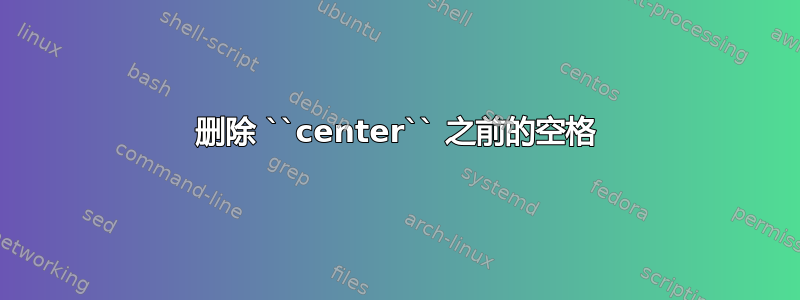
\documentclass[12pt] {article}
\usepackage{palatino}
\usepackage{fancyvrb}
\usepackage{authblk}
\usepackage{fancyhdr}
\usepackage{titlesec}
\def\baselinestretch{2.0}
\titleformat{\paragraph}{\normalfont\normalsize\bfseries}{\theparagraph}{1em}{}
\titlespacing*{\paragraph}{0pt}{3.25ex plus 1ex minus .2ex}{1.5ex plus .2ex}
\setlength{\textwidth}{18cm}
\setlength{\textheight}{21cm}
\setlength{\evensidemargin}{-0.15cm}
\newcommand{\toright}[1]{%
\leavevmode\unskip\nobreak\hfill\penalty13
\null\nobreak\hskip1em plus1fill\hbox{#1}%
}
\setlength{\oddsidemargin}{-0.15cm}
\title{\textbf{XXXXXX}}
\author{XXXXXXX}
\affil{\textbf{XXX}\;XXXX}
\affil{\textbf{XXX}\;XXXX}
\date{}
\begin{document}
\maketitle\vspace{-1cm}
\newpage
\tableofcontents
\pagestyle{fancy} \fancyhf{}
\fancyhead[LO]{XXXX}
\fancyhead[RE]{XXXX}
\fancyfoot[CE,CO]{\thepage}
\renewcommand{\headrulewidth}{1pt}
\renewcommand{\footrulewidth}{1pt}
\newpage
\begin{enumerate}
\section{ABC}
\item value to the \verb|main| function. Instead it displays the result on the console. So we write {\fontfamily{qcr}\selectfont void sum (int a, int b)}. \\
The \verb|main| function accepts the inputs and find \verb|sum| function in it. Suddenly it calls the \verb|sum| function and sends the inputs to \verb|sum| function. The \verb|sum| function takes the inputs and calculates the result and displays it on the console. Then the function control automatically returns to the \verb|main| function and finds the closing brace "$\}$" and terminates the program.
\item \textbf{function with no argument and return type:}\\
Here the \verb|sum| function has no argument and therefore we write \verb|sum()| (or we can write {\fontfamily{qcr}\selectfont sum (void)}). Since the function has return type (suppose \verb|int|), so we write \verb|int sum()| or {\fontfamily{qcr}\selectfont int sum(void)}.\\
Here the \verb|main| function at first finds the \verb|sum| function and calls it. The \verb|sum| function then accepts the inputs and calculates. Since the \verb|sum| function has return type, so it returns the result to the \verb|main| function. \verb|main| function then receives the results and prints it on the console.
\begin{center}
\begin{BVerbatim}
/* Adding two numbers using function*/
#include<stdio.h>
int sum ();
void main ()
{
int c;
c= sum();
printf("\n The sum is = %d",c);
}
int sum ()
{
int x,y,z;
printf("Enter the two numbers: ");
scanf("%d, %d", &x, &y);
z= x+y;
return z;
}
\end{BVerbatim}
\end{center}
\item \textbf{function with no argument and no return type:}\\
Here the \verb|sum| function has no argument and therefore we write \verb|sum()| (or we can write {\fontfamily{qcr}\selectfont sum (void)}). Since the function has no return type, so we write \verb|void sum()| or {\fontfamily{qcr}\selectfont void sum(void)}.\\
Here the \verb|main| function at first finds the \verb|sum| function and calls it. The \verb|sum| function then accepts the inputs and calculates. Since the \verb|sum| function has no return type, so it cannot return the result to the \verb|main| function. So the \verb|sum| function itself prints the result on the console. Then the function control automatically returns to the \verb|main| function and finds the closing brace "$\}$" and terminates the program.
\begin{center}
\begin{BVerbatim}
/* Adding two numbers using function*/
#include<stdio.h>
void sum ();
void main ()
{
sum();
}
void sum ()
{
int x,y,z;
printf("Enter the two numbers: ");
scanf("%d, %d", &x, &y);
z= x+y;
printf("\n The sum is = %d",z);
}
\end{BVerbatim}
\end{center}
\end{enumerate}
\end{document}
据我所知,我无法分成center多页。但我需要这些编码位于页面中间(居中对齐)。因此,如果我删除center并使用verbatim,则空白处会被删除,但编码会与页面左对齐。
那么我需要什么
- 编码中心对齐
- 字体是
qcr - 将页面
全部拆分在一起。
我可以使用{\fontfamily \selectfont {text}},但我认为这个过程对于大型编码来说相当费力。
编辑:我不想减少\def\baselinestretch{2.0}到 1 或者小于 2 的数字。


